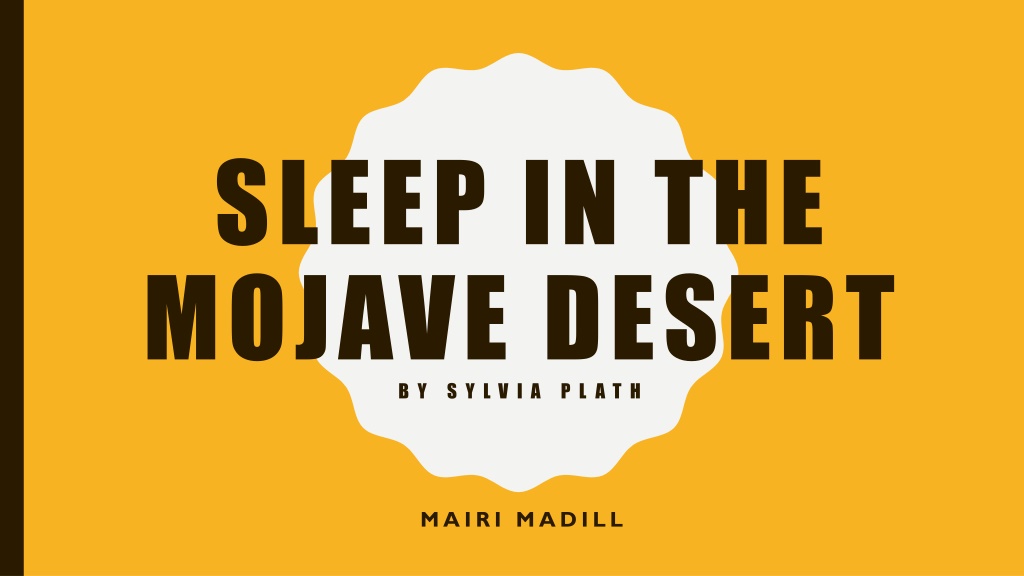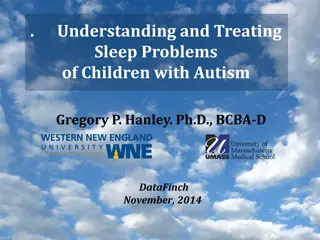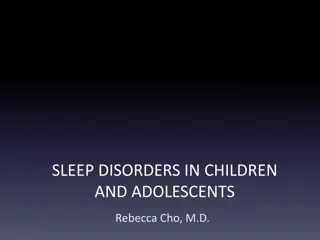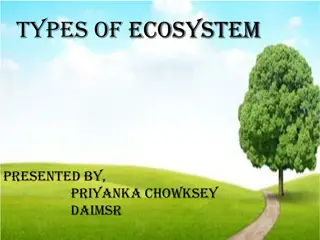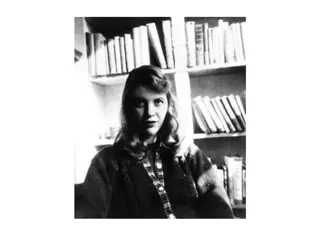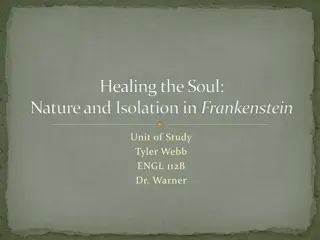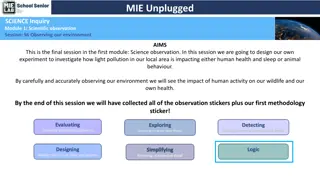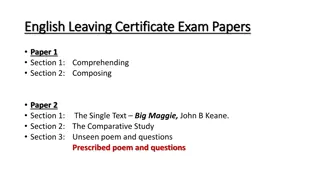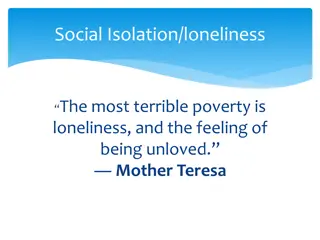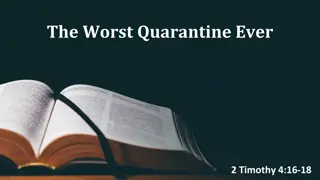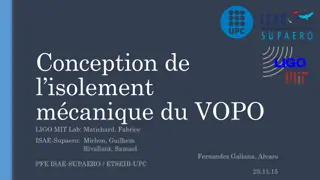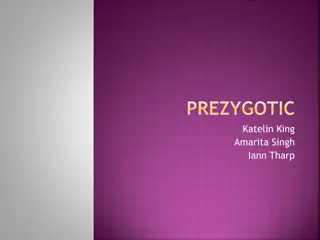Exploring Isolation and Nature in Sylvia Plath's 'Sleep in the Mojave Desert'
In Sylvia Plath's poem "Sleep in the Mojave Desert," she vividly depicts her feelings of isolation and vulnerability amidst the harsh desert landscape. Through powerful imagery, she explores themes of isolation, the sublime, nihilism, and the yearning for connection. The poem captures her profound sense of loneliness and the overwhelming presence of nature, highlighting her internal struggles and the stark beauty of the desert environment.
Download Presentation

Please find below an Image/Link to download the presentation.
The content on the website is provided AS IS for your information and personal use only. It may not be sold, licensed, or shared on other websites without obtaining consent from the author. Download presentation by click this link. If you encounter any issues during the download, it is possible that the publisher has removed the file from their server.
E N D
Presentation Transcript
SLEEP IN THE MOJAVE DESERT B Y S Y L V I A P L A T H MAIRI MADILL
Out here there are no hearthstones, Hot grains, simply. It is dry, dry. And the air dangerous. Noonday acts queerly On the mind's eye erecting a line Of poplars in the middle distance, the only Object beside the mad, straight road One can remember men and houses by. A cool wind should inhabit these leaves And a dew collect on them, dearer than money, In the blue hour before sunup. Yet they recede, untouchable as tomorrow, Or those glittery fictions of spilt water That glide ahead of the very thirsty. I think of the lizards airing their tongues In the crevice of an extremely small shadow And the toad guarding his heart's droplet. The desert is white as a blind man's eye, Comfortless as salt. Snake and bird Doze behind the old maskss of fury. We swelter like firedogs in the wind. The sun puts its cinder out. Where we lie The heat-cracked crickets congregate In their black armorplate and cry. The day-moon lights up like a sorry mother, And the crickets come creeping into our hair To fiddle the short night away.
MAIN THEMES ISOLATION THE SUBLIME NIHILISM BELONGING DISSOLUTION OF THE SELF LONGING/DESIRE
ISOLATION poplars Plath longs to be around other humans, so she clings to any sign of mankind. These manmade trees bring her comfort, which shows how isolated she feels. yet the recede, untouchable as tomorrow This sliver of hope and comfort will always leave her, leaving her isolated in this place she hates so much. masks of fury The hostility that these animals direct towards her makes her feel like she s completely alone. we Plath frequently refers to we yet still seems to portray herself as being alone, reflecting her inner sense of loneliness/isolation like a sorry mother A mother is usually a symbol of comfort and love, yet this mother is sorry to not be that symbol, highlighting the speakers isolation and lack of comfort.
THE SUBLIME air dangerous Oxymoron. She is threatened by everything around her, the nature is so powerful that it makes her feel that even the air she needs to breathe is harmful. masks of fury Once again, the animals around her make her feel isolated, alone, inferior, like she doesn t belong. black armorplate These animals are protected from the harsh conditions and she isn t, causing her to suffer through the intense heat. Inferior and helpless against natures rage. lizards airing their tongues She feels weak compared to the animals that surround her. Jealous of their ability to survive these conditions. in the crevice She is smaller than nature, it controls her.
NIHILISM simply This word choice emphasises the emptiness and the bareness of the area. the only object Plath feels a need to interject the extent of the emptiness. no hearthstones There is no buildings, no civilisation, just desert. yet they recede untouchable as tomorrow Implying nature itself is receding rom her. She is clearly obsessed with the vast emptiness of the desert.
BELONGING Throughout poem there is a true lack of belonging in this dangerous and natural environment. no hearthstones She longs for the warmth and comfort of humanity poplars Once again, shows her yearning to be surrounded by humanity. masks of fury This hostility the animals show her makes her feel like an outsider and that she doesn t belong. noonday acts queerly She is not accustomed to her surroundings and feels out of place here.
DISSOLUTION OF THE SELF we swelter glittery fictions She is weak and suffering because of the conditions of the area she is in. This idea is seen throughout, as Plath is constantly uncomfortable in these surroundings. The power and anger of the animals (also the fact they are protected and she is not) are what make her feel so weak against the suns rays. mad, straight Her surroundings are influencing her behaviour and emotions. This use of antithesis emphasises her lack of control over her emotions as she is constantly affected by her surroundings.
LONGING/DESIRE one can remember men She longs for the comfort that comes with the familiarity of the world of humans. poplars Same analysis as previously mentioned. very thirsty Creates an image of trying to reach for something. The word thirsty suggests she longs to survive these conditions and desperately seeks relief.
